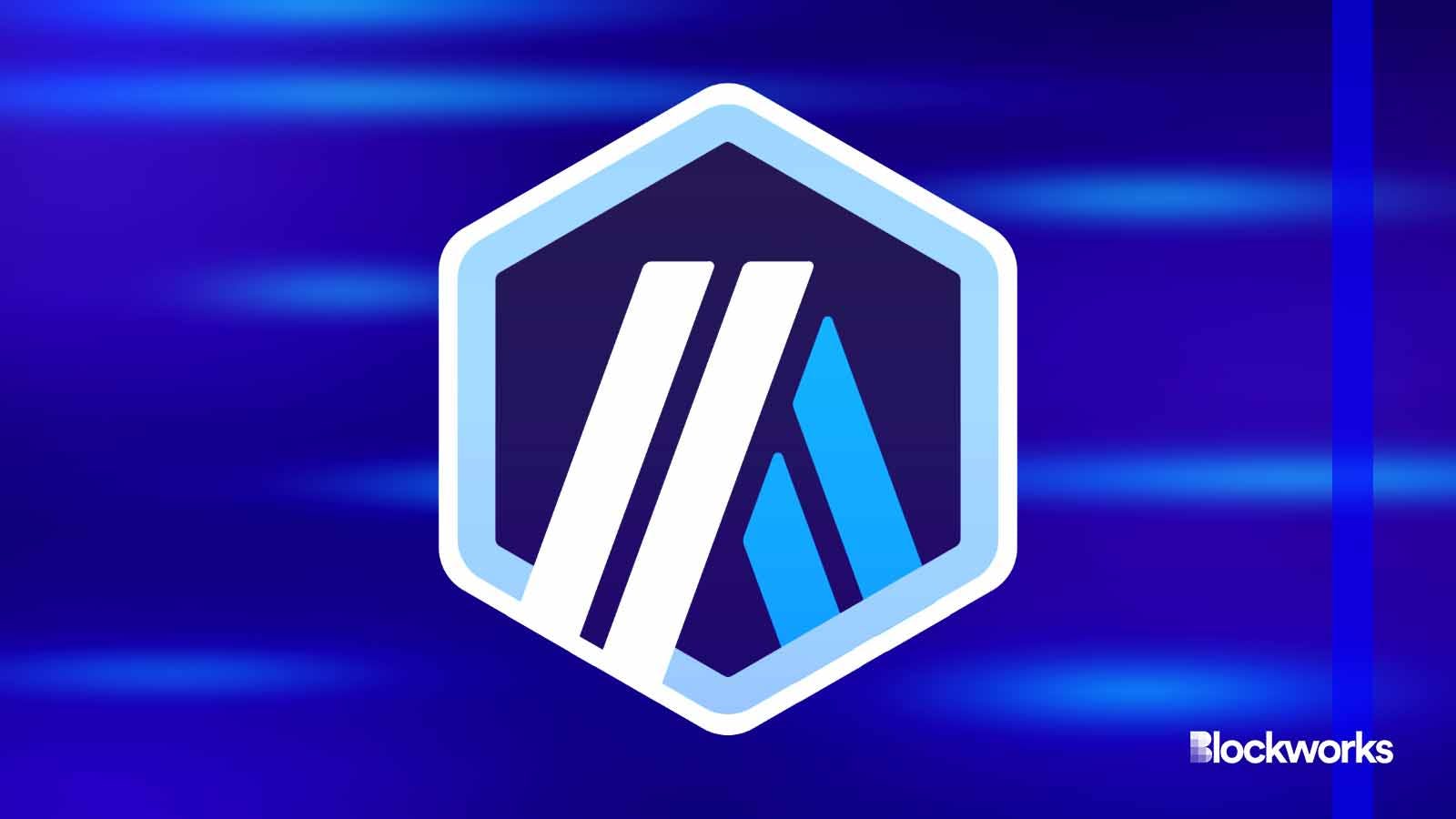Espresso Sequencer’s fourth testnet launch integrates with Arbitrum
The Gibraltar testnet will see external node operators run the network for the first time

Arbitrum and Adobe Stock modified by Blockworks
Gibraltar testnet, Espresso System’s fourth testnet launch, is now publicly available for Arbitrum developers.
The blockchain scaling and infrastructure company is known for its decentralized sequencer solution.
Sequencers are responsible for processing and ordering transactions from a mempool into blocks that are then sent to a virtual machine. They can be compared to validators on monolithic blockchains or layer-1 networks, and play an important role in securing the network.
The problem with sequencers today is that many rollups run their own sequencers with their own execution environments, and zero-knowledge solutions run their own provers. Thai introduces trust assumptions and centralization concerns — which many consider antithetical to crypto.
Espresso’s solution to this concern lies in its shared sequencer network — a distributed consensus system shared between rollups — which has so far already been integrated with Optimism, Cartesi and Polygon zkEVM via testnets.
Read more: First shared sequencer tech to go live on Polygon zkEVM testnet
Ian Sagstetter, the community and marketing lead at Espresso, told Blockworks that this latest Arbitrum stack integration through Gibraltar will enable users to submit transactions for rollups between the different networks using the Espresso sequencer.
“It also paves the way for enabling improved interoperability between rollups, because shared sequencing can provide better atomicity guarantees and economically secure pre-confirmations when compared to cross-chain transaction rollups not sharing a sequencer,” Sagstetter said.
This will not be the first time that Espresso Systems will be partnering with Arbitrum. It has previously partnered with Offchain Labs, the infrastructure team behind Arbitrum, to develop a roadmap for the transaction-ordering technology Timeboost.
Read More: Offchain Labs, Espresso Systems link up on transaction ordering tech
In addition to making it possible for Arbitrum developers to test their dapps using the shared sequencer network, the Gibraltar testnet will also see external node operators run the network for the first time.
These external nodes will be operated by the Blockdaemon team, who told Blockworks that this infrastructure will support the “hyper-scaling and seamless interoperability in the Ethereum ecosystem.”
As part of the release, Caldera and AltLayer, protocols that facilitate the deployment of rollup solutions, will also ensure that any rollup that deploys on Gibraltar will be fully integrated with Espress’s shared sequencer network.
“Shared sequencing is going to be a massive unlock for rollup interoperability and decentralization, and it’s great to see Espresso Systems leading the charge to make this a reality,” said Matt Katz, CEO of Caldera. “We’re excited to support the Espresso Sequencer through deploying numerous rollups that are integrated with the shared sequencer.”
Espresso Systems is not the only team that is building a shared sequencing network today. Astria is another team that is hoping to enable developers to deploy censorship-resistant rollups, though much of its work has been focused on bootstrapping Celestia’s rollup ecosystem.
Josh Bowen, the co-founder of Astria, told Blockworks in an interview that Astria has not put any resources toward supporting alternative data availability layers and does not intend to do so in the near future.
“By and large, the project has since day one been a heavily Celestia aligned project,” Bowen said. The decision to focus solely on the Celestia ecosystem was made by Bowen, who was one of the earliest employees at Celestia.
Read more: Celestia, the first modular data availability network, launches on mainnet
“Celestia is very much trying to increase growth, they have this target they want to work towards — having one-gigabyte blocks, they want to maximize the throughput you can get theoretical network, and that’s been appealing to me, and has very much been carried on to Astria,” he said.
The Espresso sequencer collaborates with various established layer-2 solutions on Ethereum. In contrast, Bowen notes that Astria’s shared sequencer work focuses on a different aspect. It aims to provide developers with opportunities to utilize the abundant block space available on Celestia.
“Fundamentally, what we see kind of as the goal of Astria is to provide whatever developer tooling is necessary to allow people to build rollups on top of Celestia,” he said.
Get the news in your inbox. Explore Blockworks newsletters:
- The Breakdown: Decoding crypto and the markets. Daily.
- 0xResearch: Alpha in your inbox. Think like an analyst.






